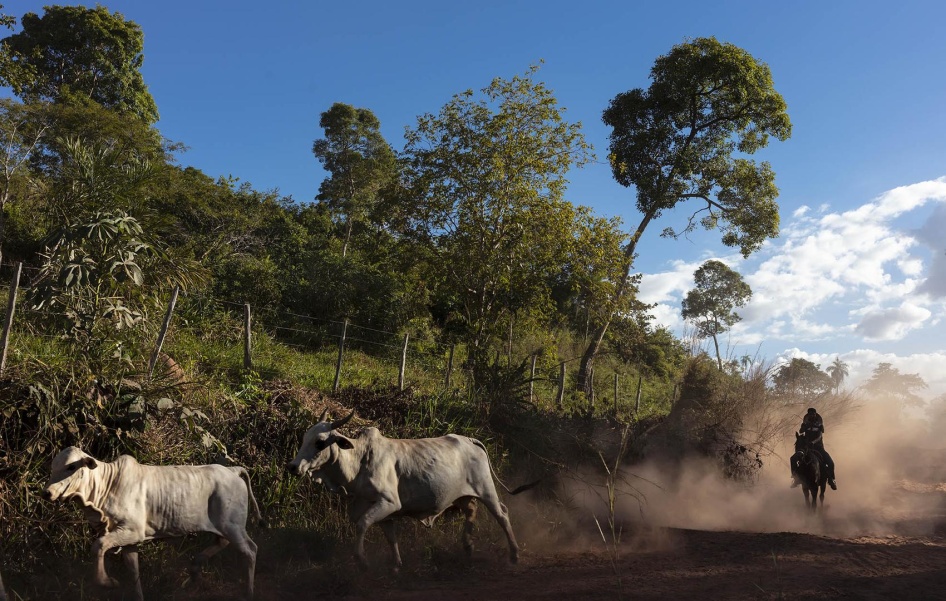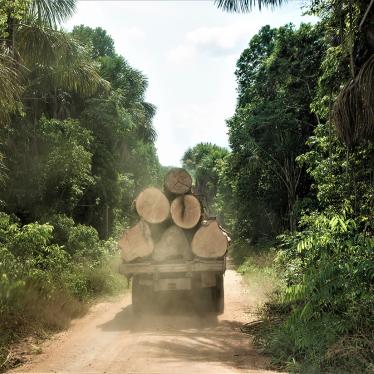In a recent interview, Environment Minister Marina Silva laid out her vision for countering environmental crime: unified political leadership, effective enforcement measures, and new sustainable economic opportunities.
Addressing illegal gold mining, Minister Silva emphasized the need to follow the money trail. “A good part of this gold that is produced criminally in the Amazon and other regions of the world ends up being exported to developed countries,” she said. “Not buying that gold is fundamental.”
Minister Silva’s words carry the authority of someone who has led a successful fight against environmental destruction. Her assessment that both sellers and buyers of illegal gold must be tackled is unimpeachable. But in Brazil, it’s not just about gold.
Most of the Brazilian Amazon’s deforestation is illegal – year on year, that is a trend that holds. Most cleared areas are converted to pasture for grazing cattle. The bottom line is that raising cattle is the main driver of deforestation, most of it illegal. This pattern also results in violations of the rights of traditional communities when illegal farms encroach on their territories.
One would expect that Brazilian authorities would welcome a regulation requiring European companies not to buy cattle products linked to forest crimes in Brazil. Just as Minister Silva prescribed, the regulation targets the buyers of illegally produced goods in “developed countries.”
The European Union’s Deforestation-Free Products Regulation (EUDR) requires European companies to ensure that commodities they export or import have been produced in conditions that respect the laws of the country they originate from, including environmental laws, anti-corruption laws, and laws on land use rights. Products must also be deforestation-free. The law applies to cattle products like beef and leather, among others. European companies will have to start complying in January 2025.
Yet rather than welcoming the EU law, Agriculture Minister Carlos Fávaro said it infringed on Brazilian “sovereignty,” though it actually requires European companies to ensure the goods they buy respect Brazilian laws.
A Foreign Affairs Ministry statement said the EU law is “incompatible” with sustainable development. But an extensive study by nonprofit Imazon found that increased deforestation correlated with lower development in Amazonian municipalities.
The Brazilian government's criticisms might give the impression that the EU law is a major threat to Brazil’s economy. But when considering the EUDR’s zero deforestation requirement, only 3.1 percent of farms in the National Environmental Rural Registry (the database in which rural land owners must register their farms), most in the Amazon and the Cerrado, are likely to face restrictions if they wanted to export to the EU, based on a study by the consortium of scientists MapBiomas.
Despite the protestations, the EU law seems to be spurring positive change. In May, the Agriculture Ministry established a group of experts to design a system to track every animal in Brazil’s enormous cattle herd. This would allow authorities to see where cattle are raised throughout their lives – and if they have been illegally grazed in protected areas or Indigenous territories.
The EU has taken an important step to curb its companies’ contribution to deforestation in Brazil and elsewhere by adopting the EUDR. The duty to hold accountable actors in the cattle industry responsible for large scale forest crimes still rests with the Brazilian government – many perpetrators still operate in plain sight.










